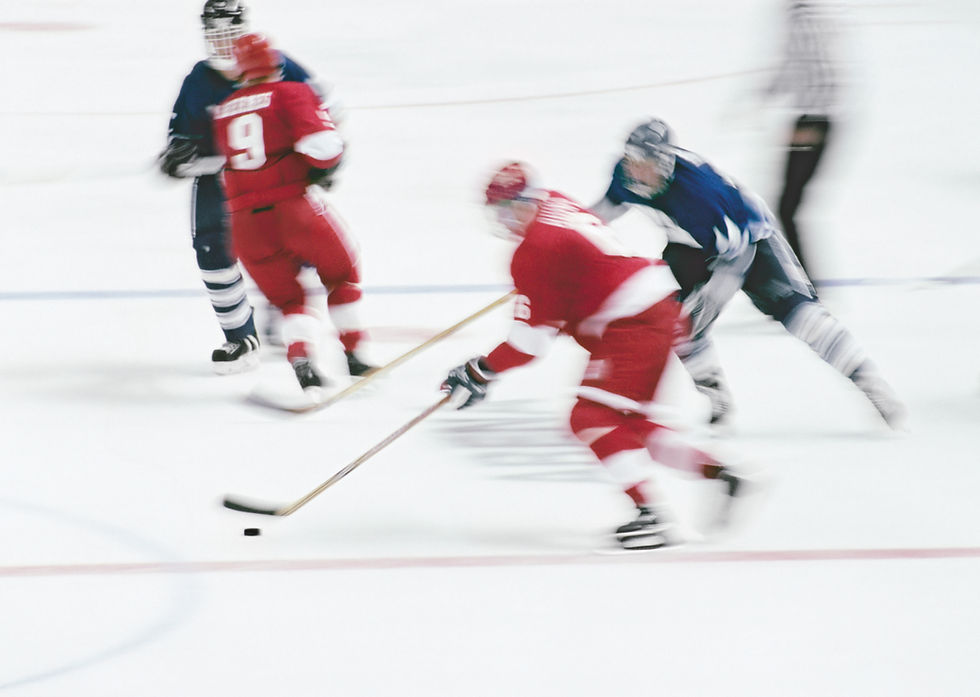
Sep 20, 2024
What do Donald Trump, the Philadelphia 76ers and the Utica Comets have in common?
They’ve all been sued this year for copyright infringement over their use of songs without the permission of the artists and companies who own the music.
The latest lawsuit to raise music theft claims was brought last Thursday by Associated Production Music (APM), a production music company with a catalog of more than 650,000 tracks. Those tracks include “Heavy Action” (a.k.a. The Theme for Monday Night Football) and “The Big One” (a.k.a. The Theme for The People’s Court). APM has the copyrights to recordings, meaning APM possesses the exclusive right to license others to use their music in exchange for payment of royalties or fees.
In a complaint filed in a California federal district court, APM accuses the American Hockey League, which is the primary developmental league for NHL franchises, and nine AHL teams of copyright infringement.
AHL teams, APM contends, use their Facebook, Instagram, YouTube and other social media channels to engage in “rampant infringement” of APM’s recordings. APM cites more than 230 specific videos in which the AHL or a team used an allegedly infringed song in a video. Major social media platforms require users to have copyright permission, and they enable copyright holders to submit takedown requests. As Sportico has detailed, UFC, the NFL and NBA have pushed for legal changes that would empower content creators to more quickly stop online piracy of their live sporting events.
Many of the allegedly infringing AHL videos have already been removed or made inaccessible to the public. However, as of this writing, the Tucson Roadrunners still have up a 30-second video that APM says uses blues and rock song “Back in Business.”
APM demands monetary damages that reflect profits from infringement or up to $150,000 for each infringed work. The company also seeks an injunction to block the AHL and teams from using its songs. APM notes that AHL has a large presence on social media platforms, with over 3.25 million fans following the league and its teams, a point suggesting the videos have been seen by many.
APM v. AHL arrives a few months after Kobalt Music Publishing American and other companies that own or have licensed interests in hit songs sung by Britney Spears, Justin Bieber and Doja Cat sued 14 NBA teams for infringement. The NBA case involves teams accused of infringement by synchronizing songs with teams’ promotional videos. That case remains in litigation.
Trump has likewise faced copyright lawsuits over his campaign’s use of music during rallies and in videos. Earlier this month, U.S. District Judge Thomas Thrash ordered Trump to stop using the song “Hold On, I’m Coming,” which was co-written and sung by the late Isaac Lee Hayes Jr. (the version of the song at issue was sung by Sam & Dave). The estate of Hayes sued Trump in August, arguing use of the song in rallies and in videos of past rallies was infringement. Thrash’s order does not include the videos, however, as he reasoned that videos of previous events don’t pose the same risk of imminent harm to the estate.
The AHL and nine teams will answer APM’s complaint and seek its dismissal. Potential defenses include the league and teams insisting they had permission through a license, or that reasonably believed they had permission based on business arrangements. Music licensing agreements, including when they involve artists and publishing companies, can prove complicated and lead to conflicting interpretations.
The defendants could also argue fair use, which means lawful copying of others’ works in certain circumstances. Those circumstances can include news reporting or for parody or criticism. Fair use analysis weighs several factors, including here the purpose and amount of music copying, to what degree the copying undermines sales of the song and whether and to what degree the original song is transformed into a new work in the videos. One hurdle for a fair use defense is that while some of the social media videos share news or information–such as a team winning a game or letting fans know about how to buy tickets–they might more accurately be regarded as marketing devices intended to boost engagement and generate revenue.
Source: Sportico